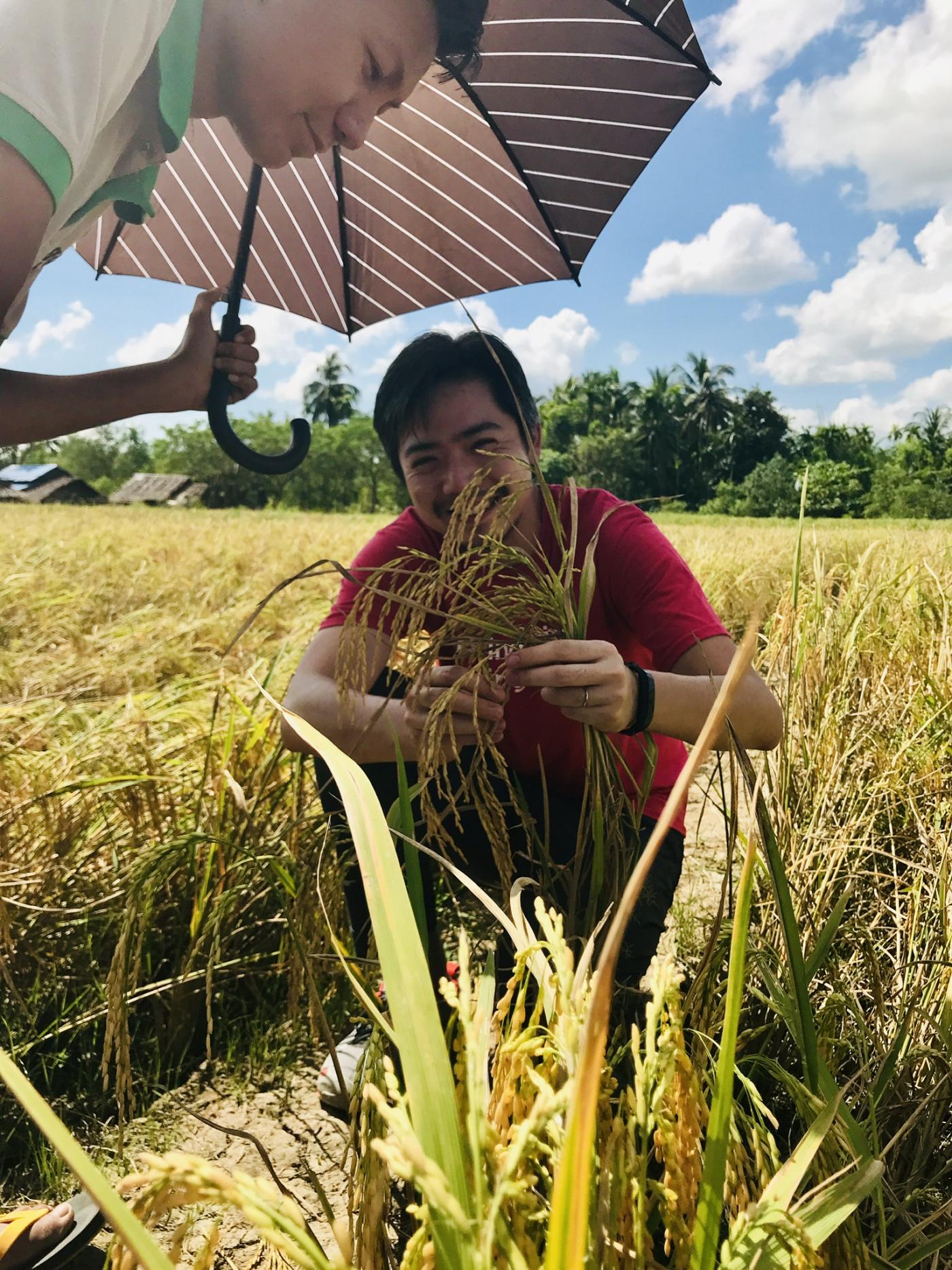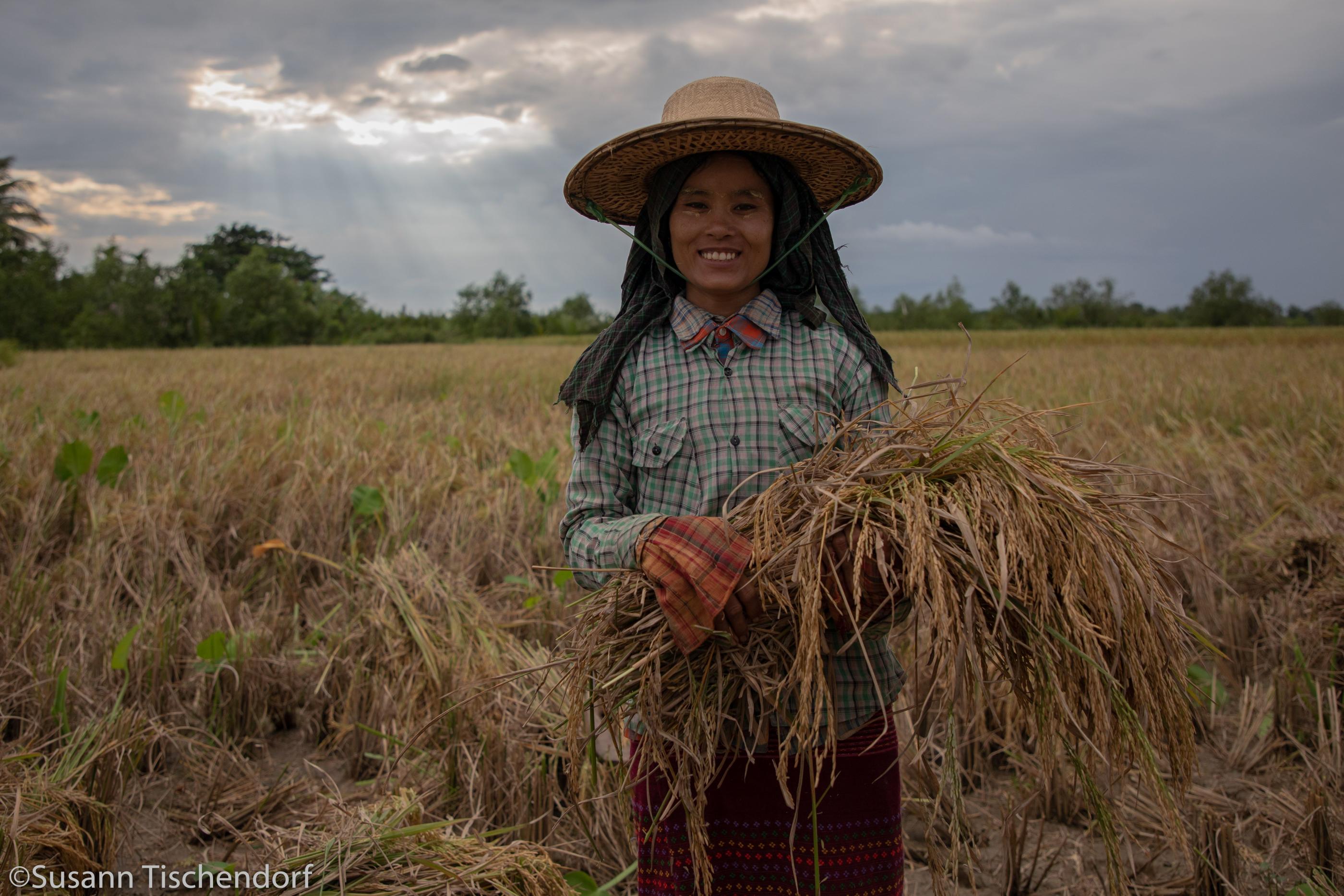Key findings
Resilience matters if treated as more than a buzzword
Inclusive businesses are often defined by resilient business practices
Sharing experiences and investing in relationships is core to staying resilient
Effective public-private partnerships are key to strengthen the resilience of communities
Insightful learning materials have been developed that aim to foster business resilience
While working on this edition of CLUED-iN, it became clear that lots of research exists on resilience. In fact, the term is not new at all. However, as Ndidi Nwuneli of Sahel Consulting points out, “Many studies have overlooked the crucial role that inclusion plays in ensuring that a company can withstand and even thrive in the face of shocks.” To inclusive business owner Nathalie Aldana, who founded Nathalie’s Direct Trade, “Resilience is comparable to the immune system of a human being. If you have a strong immune system, then you won’t get hit hard by a virus. But if you have a weak immune system, you are more vulnerable to being infected.” But what strengthens the immune system of your inclusive business? To Jona Repishti at MIT’s D-Lab, it is clearly focus and agility – both ultimately leading to resilience.
This edition of the online magazine aims to help you increase the resilience of your business. It aims to shed light on the key practical insights that have emerged from Covid-19 thus far that can help you strengthen your approach to doing business, in case you are struggling. We also aim to inspire you through the voices of entrepreneurs and organizations that share first-hand experiences of what they have done to stay resilient. Ultimately, we aim to support you in finding the key areas you can focus on right now to make a real impact and strengthen the immune system of your company.
Although they have been heavily impacted by the Covid-19 pandemic, with a unique business model at their core, many inclusive businesses, especially in sectors such as food, health, energy, finance and education, have demonstrated their resilience and shown that they are well-equipped to address the complexity of human needs that have unfolded during the time of the pandemic.
The short documentary ‘Inclusive Business – Companies As A Force For Good’ highlights the innovative ways in which inclusive business models aim to improve the lives of local communities around the globe. It highlights examples from Kenya and Myanmar. Among others, the film shows how inclusive businesses create triple wins: business are economically profitable and stable; low income communities have better access to services, products and increase their income; and governments have fewer social expenditures. The film was recently awarded the ‘Silver Trophy’ at the 2020 Deauville Green Awards, an international film festival dedicated to the environment and sustainable development.
© Copyright: GIZ/Susann Tischendorf and We Make Them Wonder GmbH
Find their answers below.
“We have developed and implemented the @home programme on Inclusive Business in response to Covid-19, a 360 learning remote programme designed for low income and low infrastructure communities. Ensuring that children can continue to learn when schools are closed, and that they do not feel that they are outside of the education system is essential. This multichannel, integrated approach leverages many touch points to reach as many parents as possible while achieving as a collection of components many of the core interactions needed to make day after day of learning at home engaging. This is achieved through a programme that includes Audio, Virtual Classrooms, digital self-study packs, learning guides, quizzes, utilises SMS, WhatsAPP, Radio and digital platforms. It is based on the core principles of what drives learning gains for Bridge International Academies in the classroom, but adapted within the constraints of @Home learning. The programme is being used at scale across multiple countries and by governments to support the Sustainable Development Goals during the pandemic. The EdoBEST@home programme was recently profiled by the World Bank.”
Joanna Hindley, Vice President of Communications, Bridge International Academies
- Click here to read Emma Colenbrander's insights
-
“The Global Distributors Collective (GDC) is a collective of over 160 last mile distributors around the world. Ecobora, portrayed in the film, is a GDC member who is also one of the winners of the GDC’s first innovation challenge in 2019, which crowdsourced innovations from members and provided funding and technical assistance to pilot those ideas.
Covid-19 has presented new challenges for last mile distributors over the past few months. The Global Distributors Collective has focused on helping its members access relief funding and technical assistance to weather the storm, as well as to prepare for a post-Covid-19 world. This has included:
- launching an innovation challenge for members focused on building resilience in last mile distribution
- working alongside partners and donors to capitalise a relief funding facility for distributors, and partnering with Crowd Power to help members access matched funding for their crowdfunding campaigns
- curating and generating resources for members via our Covid-19 resources hub
- helping members tackle key challenges, including through a virtual workshop series on topics including ‘fundraising in the face of Covid-19’ and ‘pivoting to online sales’
- giving members access to pro-bono support, including through a partnership with CGAP to provide GDC members with 1:1 technical assistance.”

Emma Colenbrander, Head of the Global Distributors Collective
- Click here to read David Chen CY's insights
-
“For a company dealing with staples, Covid-19 time is a strange period for us. Commercial wise, our rice is flying off the shelves, but uncertainty in Myanmar has created additional stress for the farmers. Farmers already have to deal with unpredictable climate patterns and market manipulation; adding a pandemic to the mix could be catastrophic. Our farmers are protected because of the guaranteed buy-back programme. We hope it mitigated some of the challenges they face with regards to access to the market. The pandemic also called for rapid digitalization and brought more awareness to the importance of the farmers and their contribution to food security.”

David Chen CY, Co-Founder & COO Golden Sunland
- Click here to read Vava Angwenyi's insights
-
“We have decided to utilize the farm for an organic food production project – The Kisaju-Kipeto Organic Food Project. We have employed youth to run the project and train others on coffee brewing and bread production. We shall soon be launching our Boflo na Kahawa initiative as a way to provide essentials to the local community, such as fresh bread with hot coffee in the cold season. (Boflo is a slang term in Kenya for bread.) We will be experimenting with various pastry using the herbs we are growing on the farm – sage, thyme, garlic and dill. We will also ensure that we reach the local community around us and reduce how far they have to travel to buy bread or get basic food items. We have also been providing maize, kale and other food we are growing on the farm to the community and educating them on handwashing, protective gear, etc. We are also working with our partners like Northstar coffee roasters in the United Kingdom in raising funds to support our farming communities. We currently have a crowdsourcing campaign and would urge our supporters to contribute to this to enable us support producers with extra harvest costs. You can find more information on our recent activities here.”

Vava Angwenyi, Founder & CEO of Vava Coffee

San San Maw, a rice farmer from Labutta, Myanmar. Thanks to the inclusive business model of the company Golden Sunland, she can make her dream come true to provide her daughter with a good education. Her story is part of the above-mentioned short film.
Covid-19 has made it very clear how important good relationships are to remaining resilient. That is why we believe storytelling formats like the film above are especially helpful to authentically understand the struggles, inclusive business aspirations, and resilience building solutions of others. In addition, empathic leadership; a close relationship to customers, suppliers, and employees; and strong business and personal networks are essential to staying resilient in times of crisis. Hence, this is the time to further foster existing and new relationships.
The Covid-19-era presents an opportunity for the private and public sector to join efforts and make inclusive business the ‘new normal’ in doing business, as the example of the French multinational Essilor shows. The company has a wide-spread rural network of vision care providers. It currently uses this network to support governments, especially at the local level, to raise awareness among communities about social distancing, hand washing and keeping safe. Jane Nelson of Harvard Kennedy School points out the crucial importance of effective collaboration among the public and private sector: “I think for those of us who believe in public-private or multi-stakeholder partnerships, the pandemic has demonstrated more than ever just how necessary they are. We’ve talked about stakeholder relationships being important to business resilience. I think public-private partnerships are also crucial to community resilience, national resilience and global resilience.” She adds: “The pandemic has made me realise more than ever that one of the key things companies need to be doing is advocating for effective government, and not trying to get rid of all regulations, avoiding tax payments and minimising the role of government. We need strong, reliable, evidence-based government and public sector leadership.”
Practical knowledge sharing materials for entrepreneurs have emerged as a response to Covid-19, among them hands-on toolkits, manuals, and webinars. Take a look at the insightful blog posts of Lisa Göllert and Felix Beideck of iBAN, as well as this in-depth interview with Kaitlin Tait of ygap. In addition to the rich content of this edition of the online magazine, find below key resources on business resilience for further study and practical action. If you know of further insights worth sharing, join the discussion on our social media channels.
MIT D-Lab: Manual to Land. Building resilience in a crisis
Business Fights Poverty: Covid-19 Response Framework
IFC report: Leveraging Inclusive Business Models to Support the Base of the Pyramid during Covid-19
Business Call to Action: Covid-19 Resources and Tools
World Business Council for Sustainable Development: WBCSD-Covid-19-Response-Program
Endeva: Inclusive business solutions for Covid-19
Global Impact Investing Network: Covid-19 Resources
McKinsey: Covid Response Center
Boston Consulting Group: Win the Fight. Restarting Societies and Economies—Safely
KPMG: Covid-19: Reaction, Resilience, Recovery, New Reality
Deloitte: Combating Covid-19 with resilience
EY: Enterprise resilience: Nine areas of focus for Covid-19 crisis management
PWC: PwC's Global Crisis Centre
Accenture Development Partnerships: Societal Response to Covid-19
FSG: Covid-19: Companies, let's get practical
Also, check out selected resources, best practices, tools and funding opportunities for companies that were launched globally in consequence of the Corona pandemic.



